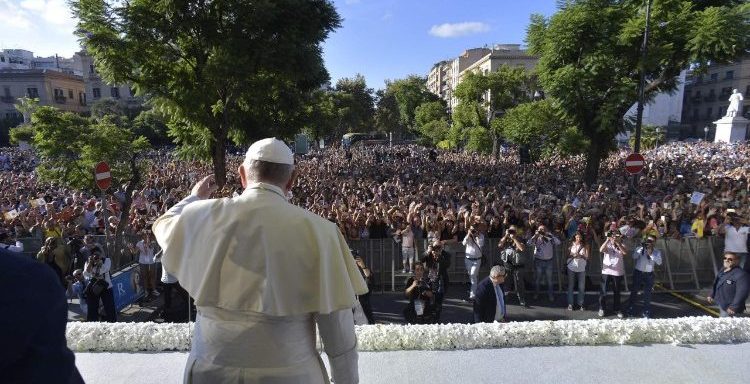(Ciudad del Vaticano) – Message from the Pope on the occasion of the inauguration of the academic year at the University of Palermo. Through study, young people must immerse themselves in reality, writes Francis, and take into account its “eliminated or discarded” parts, because it is “more from the margins” than from the “centers of power” that we understand “the great questions of the present and the future.”
In every university there is “encounter and exchange between generations; the advancement of research in the various disciplinary fields; the coexistence of different cultural, political and religious sensitivities; the interweaving of local and international reality; personal growth through successes and failures, talents and weaknesses”, in short, a university is
“in diversity, a great community”, where opposites meet, something that “contemporary coexistence, wounded by an ever more accentuated polarization of points of view, lacks above all”.
This is what Pope Francis wrote in the message sent to the Archbishop of Palermo, Monsignor Corrado Lorefice, and read by Don Carmelo Torcivia, director of the Diocesan Office for the University and Culture, on the occasion of the inauguration of the academic year of the University of the Sicilian capital – the 219th since its foundation – which took place yesterday afternoon, February 8, in the main hall of the Engineering Department of the University Campus. The Pontiff entrusts students, researchers and teachers with a word that goes against the current, “an attitude that has characterized Mediterranean cultures for centuries: “slowness” to “understand”, “grow” and “change”.
There is hope where justice finds space
“Inclusion,” “understanding,” “welcoming, suspending judgment, hosting”—these are all characteristics of the universality to which the university is called, emphasizes the Pope. He adds that “only together can we safeguard and interpret reality” and “inhabit it,” which requires much effort. And if “fears influence even the most learned individuals and trigger envy, competitiveness, vengeance, and rigidity,” what is needed is “firm personal and institutional honesty” so that “unity prevails over conflict, the common good over personal goals and private interests.” “There is hope where justice finds space,” the Pope affirms,
“and young people can become protagonists, especially through a study that does not abstract them, but immerses them in reality.” For Francis, “contact with reality is important,” especially “with its distant or discarded parts,”
such as “people who will never enter university” or “whole neighborhoods and social components that have become invisible.” Often we do not “appreciate the existence and point of view of all this,” while it is “more from the margins than from the centers of study and power” that we understand “the great questions of the present and the future.”
Livatino and Puglisi, symbols of new beginnings
The “courage to put oneself at the service of the city, leaving each one of his personal and institutional comfort zones” is needed, so that “knowledge and methodologies” are contaminated, so that there are “new transdisciplinary syntheses” and to “attract brains”, observes the Pope, noting that if all this happens
“intelligence is revived, study and life open up, new things emerge and despair recedes”.
Looking ahead to the new academic year at the University of Palermo, Francis points to “the martyrs Rosario Livatino and Don Pino Puglisi, together with a great number of witnesses who have illuminated” Sicily and its capital “with their hope”, as “symbols of new beginnings” to which everyone “can contribute” each “with their own talents”.
The importance of slowness
But in the face of the “fascination of technology” that “is imbued with speed”, in the face of “artificial intelligences” that “seduce us with their performance”, the Pontiff recommends slowness. For example, the slowness that is needed to read and “is no longer granted to those who study and even to those who teach”, the slowness that is needed to understand, but clashes with “the exasperation of performance indicators”. “Growth, in turn, is a slow process and never a linear path”, continues Francis, because
“failures, like errors, are fundamental in the search for truth” and “change also requires slowness”, in various areas.
These are “objectives” that we cannot allow ourselves to “give up”, underlines the Pope. “In them, human intelligence is at stake, irreducible to algorithms and logical processes”, concludes the Pontiff, recalling that human intelligence tends, at its core, to “seek the good”.
Source: Vatican News


